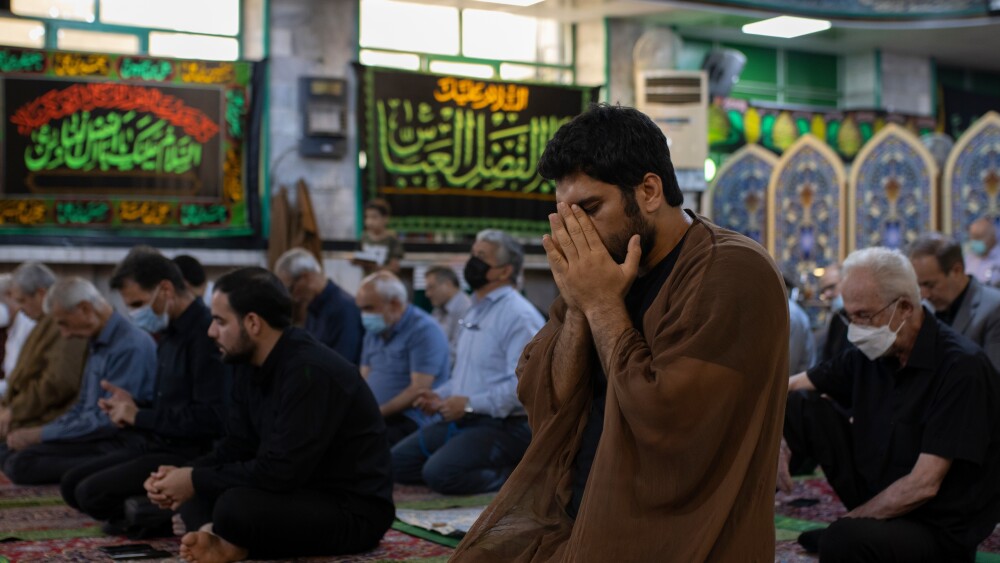The success of Israel’s Operation Rising Lion—launched on June 13, 2025, against Iran’s nuclear and missile infrastructure—was due in part to years of collaboration with Iranian dissidents and operatives. However, strategic and targeting errors made during the campaign have inadvertently empowered the Islamic Republic to justify both its external aggression against Israeli civilians and its internal repression of the Iranian people.
On June 15, one F-16I Sufa sortie targeted a safe house belonging to the Islamic Revolutionary Guard Corps in Tajrish with a Rampage missile.
The operation, coordinated between the Israeli Air Force and Mossad, commenced with precision strikes on Islamic Revolutionary Guard Corps ballistic missile sites, nuclear infrastructure, and Iranian Air Force and Air Defense bases. Its first phase targeted senior Revolutionary Guard commanders and military officials in Tehran, using cruise missiles and air-launched ballistic missiles. These precision-guided munitions were intended to minimize collateral damage. While these killed some civilians (mostly neighbors of regime officials), civilian casualties remained limited. Most of those targeted were implicated in human rights abuses during anti-regime uprisings, and thus, many Iranians welcomed their elimination.
In retaliation, Supreme Leader Ali Khamenei ordered the Islamic Revolutionary Guard Corps Aerospace Force to launch ballistic missiles at Israeli cities, including Tel Aviv and Haifa. The strikes caused destruction across residential and government areas and killed Israeli civilians. Israel’s Defense Minister Yisrael Katz responded with threats to “set Tehran on fire.” That night, the Israeli Air Force bombed oil depots in Tehran’s western district and later, facilities south of the capital. On June 15, one F-16I Sufa sortie targeted a safe house belonging to the Islamic Revolutionary Guard Corps in Tajrish with a Rampage missile. A second missile from the same aircraft struck a major water pipeline running beneath Shariati Street nearby.
The consequences of that strike are damaging for Israel. Although the target was secondary and civilian casualties were unintentional, a CCTV recording—leaked days later—captured the explosion as it obliterated several vehicles stopped at a traffic light, killing at least eight civilians, including children. The footage, verified and disseminated by international and opposition media, became a propaganda windfall for the Islamic Republic. Iranian state media weaponized the video to portray Israel as an indiscriminate aggressor and to cast doubt on the legitimacy of Iranian opposition movements that had supported the strikes on regime targets.
Opposition groups attempted to contain the fallout by claiming the footage was artificially generated. This tactic quickly failed after reputable fact-checkers and satellite imagery confirmed the authenticity of the video and the resulting destruction. Rather than undercutting the regime’s narrative, these denials undermined the credibility of the opposition. Activists, including exiled monarchists, reached out to Israeli authorities requesting an investigation or at least public acknowledgment of the mistake. Yet, as of early July, the Israeli government and military have issued no official statement. This silence allows Tehran’s disinformation campaign to flourish.
The regime’s psychological warfare apparatus is exploiting Israeli silence to erode trust between Iranians and the Israeli intelligence services they once aided.
More concerning is that the Tajrish incident was not an isolated mistake. During the 12-day operation, the Israeli Air Force reportedly struck several other non-military targets: a vehicle carrying civilians misidentified as Revolutionary Guardsmen in Najafabad near Isfahan; a Red Crescent Society office in Khuzestan, damaging the province’s only medical helicopter; and a Bell 214A medevac helicopter at Kermanshah Airport, which was mistaken for an AH-1J Cobra attack helicopter, resulting in the death of its crew chief and injuries to other air crew and medical personnel on June 18.
The visual impact of the Tajrish incident, however, fuels Iranian state propaganda, which is using it to justify executions of political prisoners, arrests of dissidents, and public demonization of Israelis. The regime’s psychological warfare apparatus is exploiting Israeli silence to erode trust between Iranians and the Israeli intelligence services they once aided.
To counter this, the Israeli government should acknowledge error, explain the operational circumstances, and make clear its efforts to minimize civilian harm. Without transparency and accountability, Israel risks alienating its most valuable internal allies in Iran: the very citizens whose intelligence contributions made Operation Rising Lion and other missions such as Operation Narnia possible.







